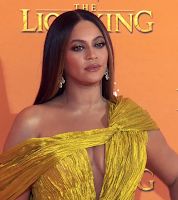The Board dismissed this opposition to registration of the mark BLUE IVY CARTER for a variety of goods and services in 14 classes (including musical performers (sic!), golf balls, plastic flags, postcards, and fan clubs), rejecting Opposer Veronica Morales's claims of likelihood of confusion, lack of bona fide intent, and fraud. Applicant BGK Trademark Holdings, LLC is owned by singer, songwriter, and actress Beyoncé Giselle Knowles-Carter, and "Blue Ivy Carter" is the name of her daughter, who provided consent to registration. Opposer Morales is the owner and founder of a lifestyle event planning company doing business under the name "Blue Ivy," and has a registration for the mark BLUE IVY for event planning services. Veronica Morales d/b/a Blue Ivy v. BGK Trademark Holdings, LLC, Opposition No. 91234467 (June 30, 2020)[not precedential] (Opinion by Judge Mark Lebow).

Likelihood of Confusion: Applicant BGK argued that the marks at issue create different commercial impressions, since BLUE IVY CARTER refers to a famous child. The Board pointed out, however, that "people, including celebrities, are often known by their first name," Beyoncé being one example. The Board found the marks BLUE IVY and BLUE IVY CARTER to be "more similar than dissimilar as to appearance, sound, connotation and commercial impression."
As to the involved goods and services, there was no evidence suggesting that they are related in such a way as to give rise to source confusion. "Opposer has, figuratively, thrown the identification of goods and services against a wall, hoping something will stick."
Nor was there any evidence that the good and services travel in the same channels of trade. "Advertising on the Internet is ubiquitous and 'proves little, if anything, about the likelihood that consumers will confuse similar marks used on such goods or services."
Since the second and third DuPont factors weighed heavily against a finding of likely confusion, the Board denied opposer's Section 2(d) claim.
Lack of Bona Fide Intent: Opposer's claim of lack of bona fide intent was primarily based on BGK's failure to produce any documentation supporting same. BGK provided no information or documents in response to discovery requests directed to its intent. However, BGK did object to those requests and opposer did not pursue a motion to compel. Therefore the Board refused to draw an adverse inference against BGK.
Opposer Morales also pointed to a statement reportedly made by Shawn Corey Carter (Jay-Z), the husband of Beyoncé and father of Blue Ivy Carter, in a Vanity Fair magazine article:
The Board, however, noted that Jay-Z is not a party and is not legally connected to the company. His statement cannot be attributed to the company just because he is the husband of the owner. Moreover, the statement is double hearsay, since neither Jay-Z not the reporter made that statement in "court," under oath, with the opportunity for cross-examination. And so the Board dismissed this claim of lack of bona fide intent due to failure of proof.
Fraud: Opposer's fraud claim was founded solely on the assertion that BGK submitted a false statement of bona fide intent. Since Opposer failed to prove a lack of bona fide intent, this claim failed as well.
Originally published July 15, 2020.
The content of this article is intended to provide a general guide to the subject matter. Specialist advice should be sought about your specific circumstances.

